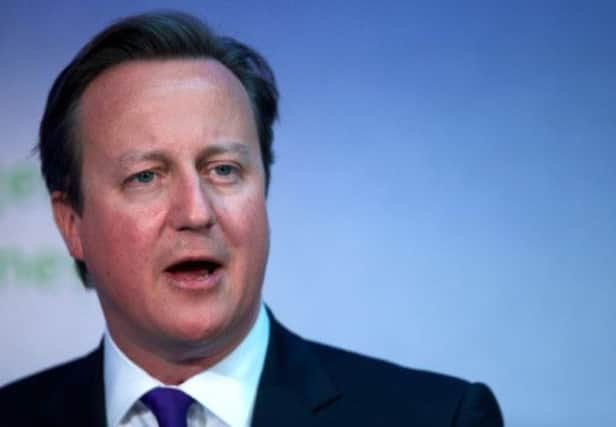David Cameron: GCHQ operates within the law


The Prime Minister declared that he was personally satisfied “that they operate in a way that is proper and that is fitting”.
Documents leaked by former CIA worker Edward Snowden suggest GCHQ have had access to a US spy programme since at least June 2010.
Advertisement
Hide AdAdvertisement
Hide AdPrism is said to give the National Security Agency and FBI easy access to the systems of nine of the world’s top internet companies, including Google, Facebook, Microsoft, Apple, Yahoo and Skype.
Foreign Secretary William Hague declined to confirm or deny the claimed UK links when he appeared before MPs to be questioned on the issue, insisting he would say “nothing that gives any clue or comfort to terrorists, criminals or foreign intelligence services”.
He said Britain deplored the leak by Mr Snowden – who has sought refuge in Hong Kong – but said Britain’s systems of checks and balances on its intelligence services “could be the strongest in the world”.
And he insisted intelligence sharing with the US was more important than ever in the face of mounting terror and other threats – pointing to a big spike in activity ahead of the Olympic Games in London last year.
Initial information has been handed over to the intelligence and security committee (ISC), which carries out parliamentary scrutiny of covert operations, and it is due to receive a full report from GCHQ today, Mr Hague told MPs.
In the year to May 2012, GCHQ is reported to have generated 197 intelligence reports via Prism. But Mr Hague told MPs any suggestion it was part of an effort to circumvent the law was “baseless”.
“It has been suggested that GCHQ uses our partnership with the United States to get around UK law, obtaining information that they cannot legally obtain in the United Kingdom,” he said in a statement.
“I wish to be absolutely clear that this accusation is baseless.
Advertisement
Hide AdAdvertisement
Hide Ad“Any data obtained by us from the United States involving UK nationals is subject to proper UK statutory controls and safeguards, including the relevant sections of the Intelligence Services Act, the Human Rights Act and the Regulation of Investigatory Powers Act.”
He accepted, however, that mistakes could be made.
Intelligence sharing across the Atlantic “remains essential to the security of both nations” and had saved many lives, he said.
“This was particularly the case in the run-up to the Olympics. The House will not be surprised that our activity to counter terrorism intensified and rose to a peak in the summer of last year.”
Tackled on the issue earlier, Mr Cameron drew on the killing of soldier Lee Rigby as anexample of the “dangerous world” that made intelligence work increasingly vital.
“We live in a world of terror and terrorism,” Mr Cameron said. “We saw that on the streets of Woolwich only too recently.
“I think it is right that we have well-funded, well-organised intelligence services to help keep us safe.
“But let me be absolutely clear: they are intelligence services which operate within the law, within the law that we have laid down, and they are subject to proper scrutiny by the intelligence and security committee in the House of Commons.”
The ISC chairman, Sir Malcolm Rifkind, said that the law was “quite clear”.
Advertisement
Hide AdAdvertisement
Hide Ad“If the British intelligence agencies are seeking to know the content of e-mails by people living in the UK, then they actually have to get lawful authority. Normally that means ministerial authority,” he said.
“That applies equally whether they are going to do the intercept themselves or whether they are going to ask somebody else to do it on their behalf.”
Sir Malcolm said “some intrusion on privacy in certain circumstances” was necessary to ensure public safety.
SEE ALSO: